War World II, one of the two greatest tragic events in the history of humankind, included almost all nations and provoked an overwhelming number of deaths, both among the armed forces and among civilians. Remembering it is the best we can do in order to pay a tribute to all those good people that died in horrible conditions and unwillingly became heroes. Here is therefore a top of 10 the most important battles of World War II.
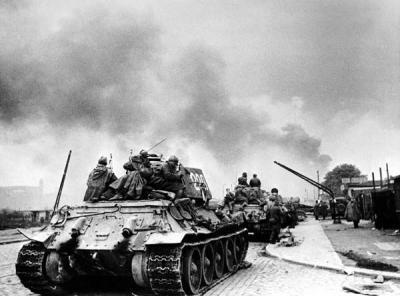
This was the greatest offensive in human history and it was launched by the Soviet Union with the aim of destroying the German divisions from Poland and Prussia. This fierce battle involved 2.330.000 Russian troops and around 900.000 Germans. The losses were overwhelming. The victory of the Soviet Union was huge and extremely important for the fate of the war. Together with the Battle of Normandy in France, won by the Allies in the same period, it represented the beginning of the end for the Germans.
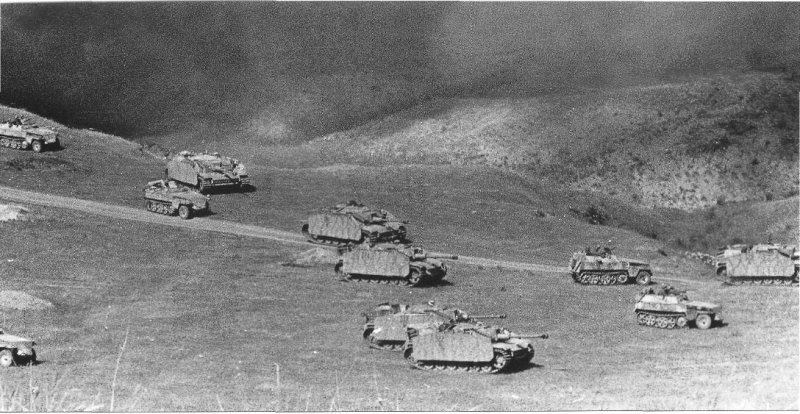
This battle established few records: It was the world’s costliest single day of aerial warfare, but also, biggest tank battle in history. It was also a decisive clash that marked the final offensive of the Germans in the East. At Kursk, Germany lost 100.000 solders, while the Soviet Union had 250.000 casualties and lost half of its tanks. The Battle of Kursk was the first clash in the history in which a Blitzkrieg offensive had been crushed before it could penetrate enemy defences
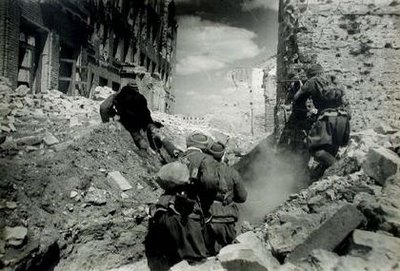
On the day of August 23, the Soviet Union launched the second greatest offensive ever. The battle’s aim was the control over Stalingrad and it remained in the history as one of the greatest battles in history, but in the same time, one of the bloodiest. There were almost 2.000.000 victims on both sides, while there was no consideration for civil lives either. The Germans suffered the greatest defeat in the history of the wear, even though the loss of human lives was much higher in the Soviet Army.
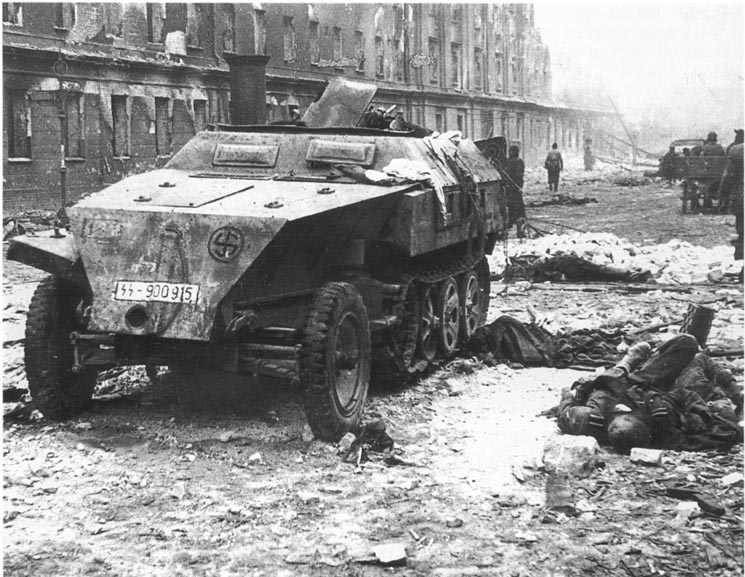
This was the second greatest urban clash in history (after the Battle of Stalingrad which ranked first).The actors on this war scene were the Soviet Union and Germany, of course. This was the last important offensive of the World War II in Europe, as well as the deadliest. Before the end of it, Adolf Hitler had committed suicide, together with ones of his close devotees. The battle of Berlin cost the life of 22.000 German civilians and the total number of casualties(dead, wounded, captured) rose at 1.000.000 people on both sides.

This was the largest amphibious offensive in history, including 5.000 ships 160.000 troops. It marked the liberation of France by the Allied Forces. This battle was an important victory against Germany, and it was one of the most successful operations in History. However, as the Allied forces successfully entered Paris, the number of casualties had reached 500.000. Because of the horrible conditions that the Allies were forced to endure, many of these poor men were wiped up out one by one on the beaches of Normandy, before they even had the chance to reach the shore.
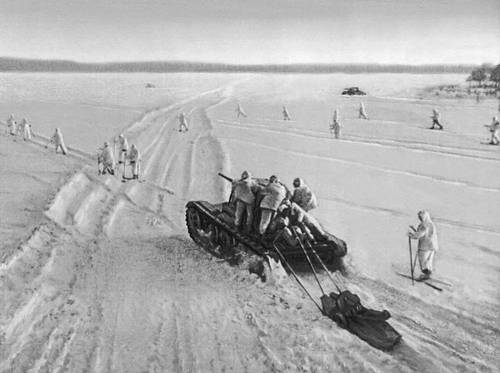
The German forces started an offensive against the Soviet troops in Moscow on the day of November 17. This city was an important strategic location for Germany’s further actions and it would have severely weakened the strength of the Soviet Moscow , if successful. Unfortunately for the Germans, the severe Russian weather proved more than they could handle. The counterattack organised by the Soviet army was successful and Germans were forced to redraw. There were 900.000 casualties, among which 700.000 on the Russian side.
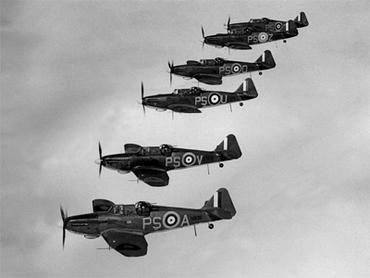
Also called, ‘The Air Battle of England’, it remained in history as the first battle to be fought entirely in the sky, as well as the greatest air battle ever. It was also the largest bombing campaign to that date. The result of this clash favoured the Allies, and it is a real luck it happened so, since in the case of an victory, Hitler would have initiated operation Sea Lion, a major amphibious and airborne attack against England.
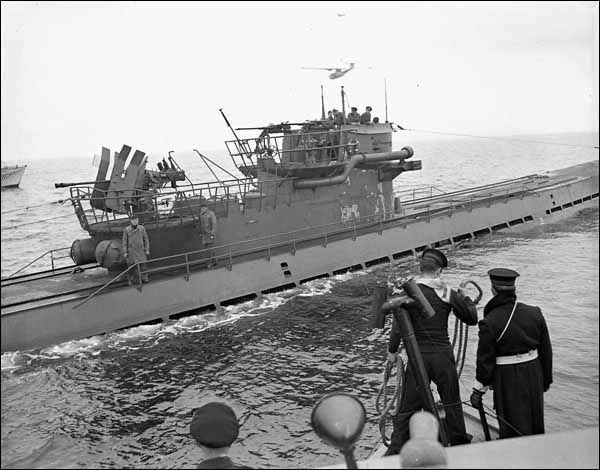
This battle was the longest in the history of World War 2. It began in 1939 ant it lasted up to the defeat of the Germany. The combatants were on one side the Germans and on the other, the British and Canadian forces. Later, USA and Italy sent help in the area as well. This battle was fought on the sea and its aim was that of stopping US aids to reach England. The casualties proved equal: 50.000 victims were reported each side.
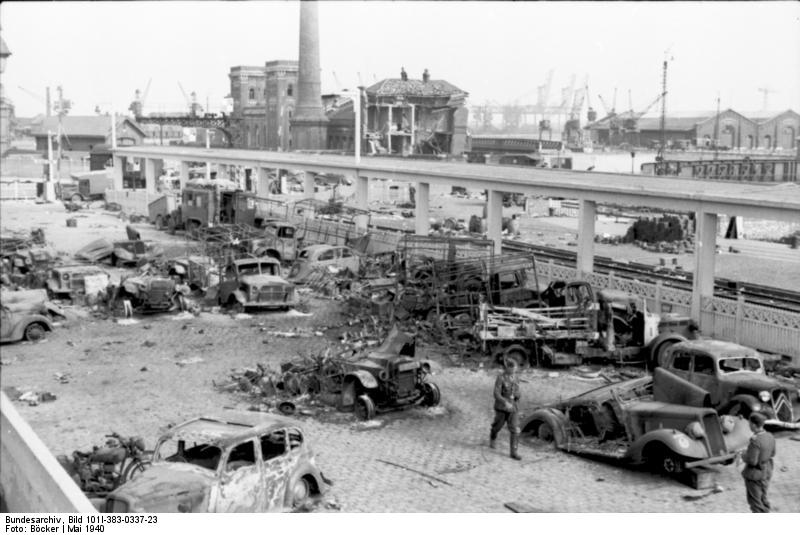
The Battle of France marked the invasion of France by the German troops, in May 10, 1940. It also meant the end of the Phoney War, an early stage of World War II, characterised by the lack of important military actions in Europe. The advancing of the German army, through Belgium and Holland was not foreseen by the French army, which dids not react in time. Paris was occupied on June 14 and consequently France was obliged to sign an armistice which took France out of the battlefield for a long period. This was a great victory for Germany and its allies.
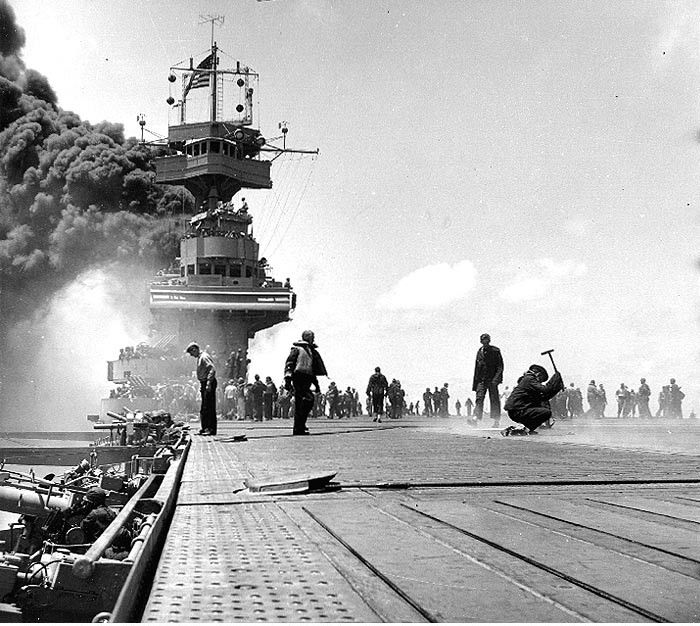
The Battle of Midway is considered the most important Air Craft Carrier battle in history.In June 4, the Japanese fleet tried to defeat the US Aircraft Carriers , in order to gain supremacy in the Pacific . Their plan was also that of occupying Midway Island, a strategic position that would have allowed them to take Hawaii afterwards, and to extend their defensive perimeter as well. The plan ended in complete disaster, as the Japanese troops were defeated and their fleet suffered massive loses, especially comparative to those of the Us Navy.
1. Operation Bagration (June 22, 1944- August 16 1944)

This was the greatest offensive in human history and it was launched by the Soviet Union with the aim of destroying the German divisions from Poland and Prussia. This fierce battle involved 2.330.000 Russian troops and around 900.000 Germans. The losses were overwhelming. The victory of the Soviet Union was huge and extremely important for the fate of the war. Together with the Battle of Normandy in France, won by the Allies in the same period, it represented the beginning of the end for the Germans.
2. Battle of Kursk (July 5, 1943 – July 13, 1943)

This battle established few records: It was the world’s costliest single day of aerial warfare, but also, biggest tank battle in history. It was also a decisive clash that marked the final offensive of the Germans in the East. At Kursk, Germany lost 100.000 solders, while the Soviet Union had 250.000 casualties and lost half of its tanks. The Battle of Kursk was the first clash in the history in which a Blitzkrieg offensive had been crushed before it could penetrate enemy defences
3. Battle of Stalingrad (August 23 1942 t- February 2 1943)

On the day of August 23, the Soviet Union launched the second greatest offensive ever. The battle’s aim was the control over Stalingrad and it remained in the history as one of the greatest battles in history, but in the same time, one of the bloodiest. There were almost 2.000.000 victims on both sides, while there was no consideration for civil lives either. The Germans suffered the greatest defeat in the history of the wear, even though the loss of human lives was much higher in the Soviet Army.
4. Battle of Berlin (April 16 1945-May 7 1945)

This was the second greatest urban clash in history (after the Battle of Stalingrad which ranked first).The actors on this war scene were the Soviet Union and Germany, of course. This was the last important offensive of the World War II in Europe, as well as the deadliest. Before the end of it, Adolf Hitler had committed suicide, together with ones of his close devotees. The battle of Berlin cost the life of 22.000 German civilians and the total number of casualties(dead, wounded, captured) rose at 1.000.000 people on both sides.
5. The battle of Normandy (June 6, 1944-July 24, 1944)

This was the largest amphibious offensive in history, including 5.000 ships 160.000 troops. It marked the liberation of France by the Allied Forces. This battle was an important victory against Germany, and it was one of the most successful operations in History. However, as the Allied forces successfully entered Paris, the number of casualties had reached 500.000. Because of the horrible conditions that the Allies were forced to endure, many of these poor men were wiped up out one by one on the beaches of Normandy, before they even had the chance to reach the shore.
6. Battle of Moscow (November 17 1941-January 28, 1942)

The German forces started an offensive against the Soviet troops in Moscow on the day of November 17. This city was an important strategic location for Germany’s further actions and it would have severely weakened the strength of the Soviet Moscow , if successful. Unfortunately for the Germans, the severe Russian weather proved more than they could handle. The counterattack organised by the Soviet army was successful and Germans were forced to redraw. There were 900.000 casualties, among which 700.000 on the Russian side.
7. Battle of Britain (July 10, 1940-Octomber 31, 1940)

Also called, ‘The Air Battle of England’, it remained in history as the first battle to be fought entirely in the sky, as well as the greatest air battle ever. It was also the largest bombing campaign to that date. The result of this clash favoured the Allies, and it is a real luck it happened so, since in the case of an victory, Hitler would have initiated operation Sea Lion, a major amphibious and airborne attack against England.
8. Battle of Atlantic (September 1, 1939- June 4, 1944)

This battle was the longest in the history of World War 2. It began in 1939 ant it lasted up to the defeat of the Germany. The combatants were on one side the Germans and on the other, the British and Canadian forces. Later, USA and Italy sent help in the area as well. This battle was fought on the sea and its aim was that of stopping US aids to reach England. The casualties proved equal: 50.000 victims were reported each side.
9. Battle of France (May 10 1940 – June 10 1940)

The Battle of France marked the invasion of France by the German troops, in May 10, 1940. It also meant the end of the Phoney War, an early stage of World War II, characterised by the lack of important military actions in Europe. The advancing of the German army, through Belgium and Holland was not foreseen by the French army, which dids not react in time. Paris was occupied on June 14 and consequently France was obliged to sign an armistice which took France out of the battlefield for a long period. This was a great victory for Germany and its allies.
10. Battle of Midway (June 4, 1942 – June 71942)

The Battle of Midway is considered the most important Air Craft Carrier battle in history.In June 4, the Japanese fleet tried to defeat the US Aircraft Carriers , in order to gain supremacy in the Pacific . Their plan was also that of occupying Midway Island, a strategic position that would have allowed them to take Hawaii afterwards, and to extend their defensive perimeter as well. The plan ended in complete disaster, as the Japanese troops were defeated and their fleet suffered massive loses, especially comparative to those of the Us Navy.
No comments:
Post a Comment